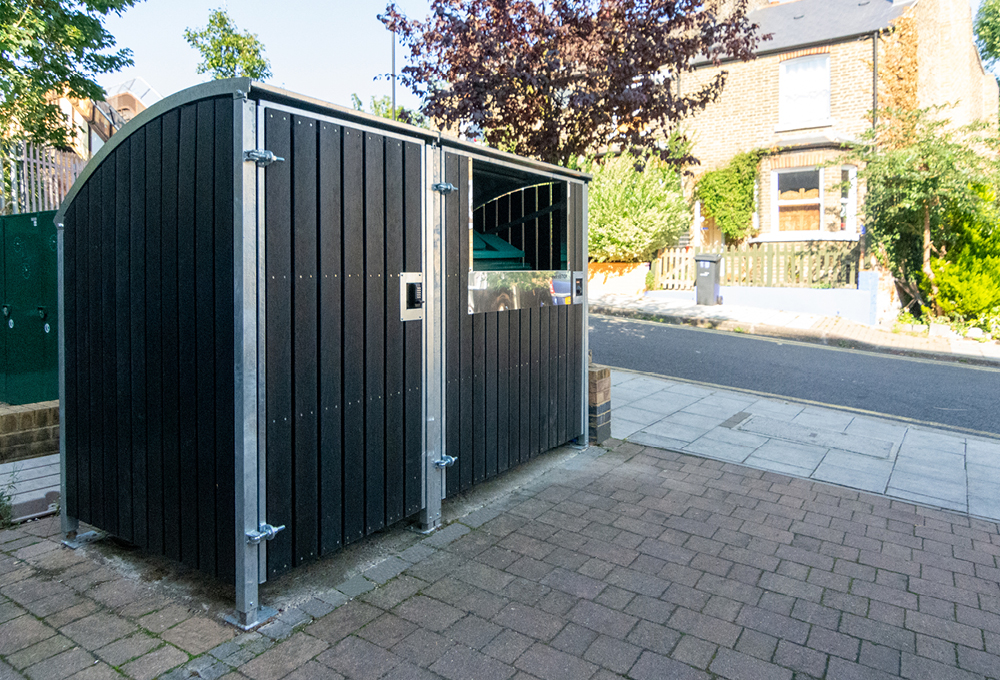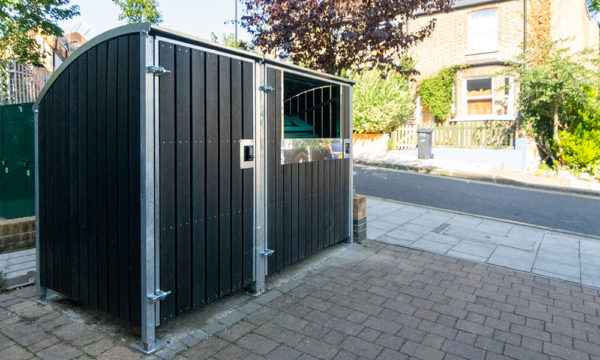Case Study Highlights
| Project | Canterbury Grove, West Norwood |
| Client | London & Quadrant |
| Scope | metroSTOR PBM Bin Storage Housings |
Bin stores reduce unscheduled collections for bulky waste.
London & Quadrant is one of the UK’s leading housing associations and one of London’s largest residential, owning or managing over 70,000 homes in London and the South East. Its mantra is `creating places where people want to live’ and its success comes from a determination to maximise resident satisfaction, while at the same time growing its business responsibly.
Like all responsible social housing providers, every penny is invested back into providing more and better homes and services to residents. L&Q recently identified the unscheduled removal of bulky waste as being one of the key costs that they needed to get under control; they reckoned that substantial savings could be achieved if they could schedule a fixed-cost monthly collection rather than having numerous unscheduled weekly collections.
This, of course, would necessitate the provision of secure storage facilities at each scheme for bulky items, but the challenge was to restrict the use of these to L&Q tenants only, as there was evidence to suggest that in some cases they were unwittingly providing a free service to the whole street – a growing problem as more local councils introduce charges for the collection of bulky items.
Three blocks of flats in Streatham were generating a particularly high level of complaints and pressure from local Councillors to provide a solution so these were selected as a pilot. Despite being a relatively new development, the timber bin stores were insecure and in poor condition so those on he first block were replaced with secure bin enclosures for 2no 1100L general waste containers, 1no 1100L recyclables container along with a locker for bulky items.
The initial trial proved to be very successful with a dramatic reduction in bulky waste so the enclosures have now been replaced on the two remaining blocks as well, with L&;Q looking to introduce this at a number of other schemes.
“The unscheduled removal of bulky waste as being one of the key costs that they needed to get under control; they reckoned that substantial savings could be achieved if they could schedule a fixed-cost monthly collection rather than having numerous unscheduled weekly collections.”







